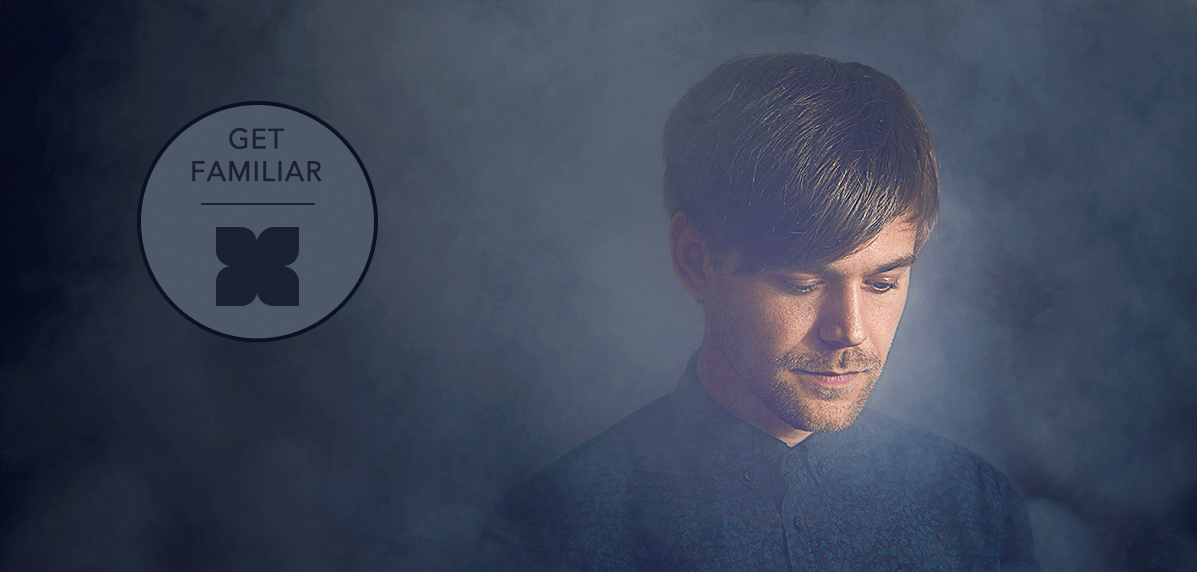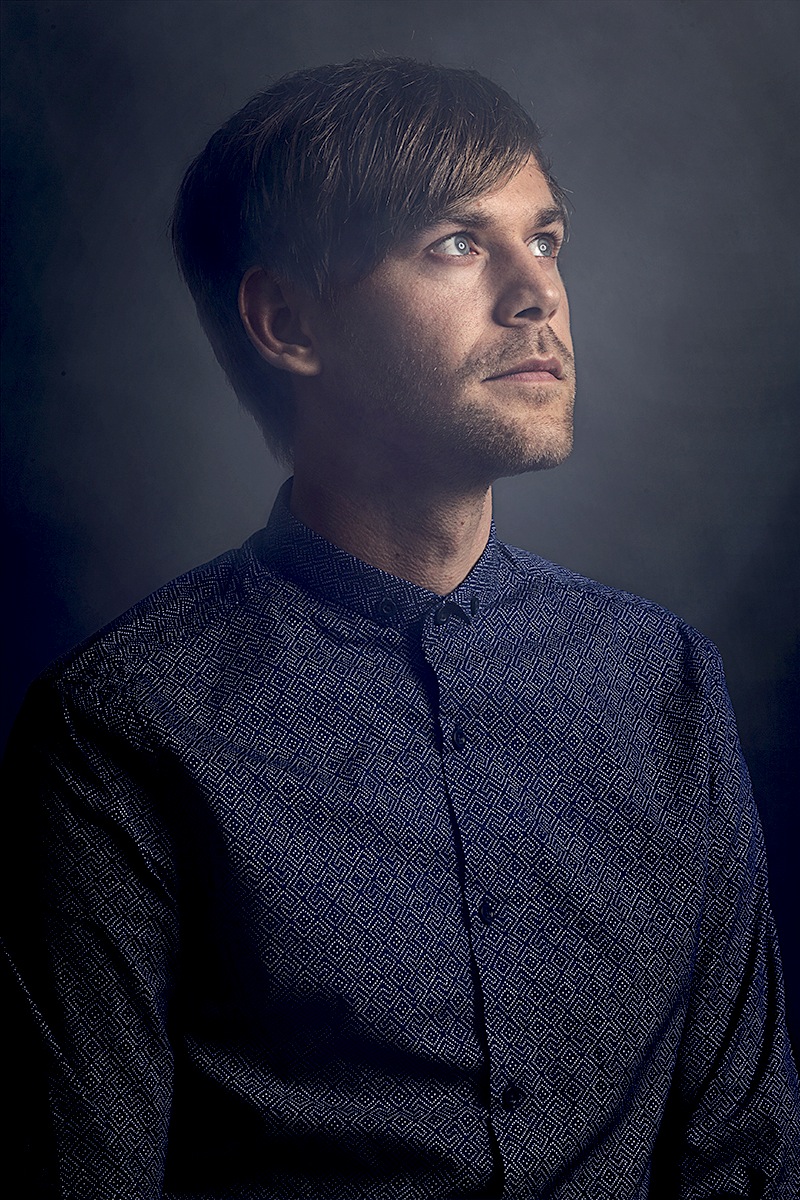Get Familiar: Patlac
The Hamburg DJ, producer, and remix specialist comes into his own with a series of emotive releases.

Get Familiar: Patlac
The Hamburg DJ, producer, and remix specialist comes into his own with a series of emotive releases.

I meet Patlac, one of deep house’s rising talents, on what is perhaps the hottest day of the Berlin summer so far. Fresh off the train from Hamburg—he’s in town for a gig taking place later on that night—we join up in the Kreuzberg neighborhood, where the streets are buzzing with energy and people are basking under the sunlight. Looking for a quiet spot outside to have our chat and to join in on the celebration of summer, we settle on the lawn in front of the famous East Side Gallery by the river, beers and cigarettes in hand.
Born in Berlin and raised in a small town outside of Hamburg, the producer (born Patrick Müller) recalls growing up in a very musical household. “Music was always flowing out of every corner of our home,” he says. “My father used to always have the radio on and would play records by artists like the Beatles and the Rolling Stones.” He accounts his taste for electronic music to shows like the Berlin House TV show and the Love Parade: “When I was a bit older, I started watching these shows or listening to radio stations like Radio Fritz,” he recalls, “and suddenly I saw myself becoming more and more interested in this music. It was funny because when you saw this Love Parade thing you didn’t really understand what was going on.” It was then that he decided to buy his first records, insisting he remained quite clueless about the underground music scene for a while: “Everything was so removed from us. It was the music from the big cities but we were not educated—we didn’t know what was happening or what the real underground scene in Berlin was.”
Müller’s entry into the scene was far from seamless: “At one point, I met a friend of mine who knew how to mix records and showed me how to do it,” he says. “I remember standing there all the time trying to mix two records together—sometimes I would stand for 10 hours—just trying. After that, I just wanted to do it all the time.” A few years later, Müller started DJing house parties alongside other friends, before moving to set up his first DJ collective and throwing regular parties at a neighborhood bar. During this time, he adopted the nickname Patlac—a name that he inherited after a friend drunkenly tried to call out for him and all he could manage to pronounce was the name that Müller would later be professionally known as.
It is a longstanding friendship with fellow DJ and producer Matthias Meyer that led Müller to produce his own tracks. Their first coproduced EP, Salt City Skipper, was released on Hamburg label Liebe*Detail in 2008, sparking an ongoing spree of collaborations. Müller and Meyer’s longstanding friendship and natural chemistry unmistakably stands out in their work. “I think it’s nothing special,” he laughs when prompted on his relationship with Meyer. “The first point is that we like the same type of music. When we used to meet more regularly to play together, I didn’t know what records he would bring and he didn’t know mine but somehow it all fit. We understand each other and I think that’s what’s most important, especially when it comes to producing.” Both artists seem to complement each others’ efforts, and the synergy has naturally resulted in their success. Remixes, such as Dilo’s “21st Century Fox” track, have garnered the support from the likes of Hamburg heavyweight Solomun. “In our case, I believe Matthias is really the main producer,” Müller says. “I’m not the type of guy that can sit there for ten hours straight trying to fix every little detail. Matthias, he’s the complete opposite. He can spend months thinking ‘is this the right bass drum?’. In this way I think it’s really cool to work with him—I trust him absolutely in his sound and skill as a producer.” He takes a few cigarette drags, adding: “I’m not trying to say I’m the creative one in this pairing either, but I’m perhaps more on the DJ/listener side. That’s how we bounce ideas off each other.”
It’s certainly no secret that some of the best acts in the electronic music scene hail from Hamburg: Kollektiv Turmstrasse, Lawrence and DJ Koze, along with an array of up-and-coming artists, give the city a reputation as a hub for musical talent. Perhaps the reason behind this is Hamburg’s own melancholic beauty. A port city, it is easy to see where these artists draw their inspirations from, with the ocean radiating with its vastness against every backdrop. “I don’t really know what it is about Hamburg, I can’t quite explain it,” Müller says. “Maybe it has to do with the harbor and this melancholic wide open feeling, the north being colder, there’s ‘inside things’ going on with people.” He continues, “Or maybe it’s because there’s less pressure to be somebody there—everything is more relaxed. It’s really easy to live there,” comparing Hamburg to a city like Berlin, with its lurking omnipresence of big-name clubs and artists.
Müller’s works possesses a profoundly melodic element, describing his own productions as “forward-moving grooves with a touch of melancholia…but I don’t know exactly! I just like the idea of emotions mixed within the grooves.” It’s his sensitive approach to the craft that makes the Hamburg producer’s music so compelling; his productions possess a depth that speaks to the soul, but remain vibrant on the dancefloor. The music conveys not only a message, but also have the ability to transport listeners to an emotional and spiritual space, and this delicate approach is perhaps the essence of what makes him such a standout and exceptional producer. “In the beginning of this hard-techno phase, I started noticing guys like Ian Pooley or the whole Poker Flat thing, and I would use their tracks but play them really fast. I liked them because it was different from the super-hard techno stuff—they had different melodies that were less strong or aggressive, and even sunny at times, and I started to really like that. I think that’s when my direction in sound started stirring.”
As a DJ, Müller is inclined to improvise and innovate. “During a set, I play for the people but I also play for me—I don’t want to get bored! I feel more like a DJ—that’s what I’ve always wanted to do, to play records from all these great artists and mix it all together and create something new in the mix, telling a story.” His sets effectively manage to remain vigorous and dance driven, yet find a way to speak to the heart. He says that to this day he can feel his techno background coming back to the surface. “It’s just a familiar sound and environment I’m really comfortable with. I’ve started trying to incorporate that in my sets, always alternating back and forth between that sound and tracks with softer melodies and emotions.”

Besides his own productions, Müller is possibly better known for his remixes, which have been released on labels including Liebe*Detail, Pets Recordings, Musik Gewinnt Freunde, and Noir Music. “I’m a fan of remixes. I’m way more comfortable with getting material from somebody and thinking about what I should do with this material. Maybe that’s my way into the production thing.” Those remixes have certainly earned him a great deal of praise and recognition. Interestingly, he expresses the many obstacles when dealing with original productions: “It’s hard to explain, really,” he says. “When I think of all the productions I did, sometimes I just don’t know how I did it. There’s a lot of trial and error,” he continues, before explaining that the mistakes he makes in the studio often end up being part of the final production result once he has allowed them to breathe for a while. “When I’m in the studio I play around—and in the end there’s always 80 percent bullshit, and 20 percent is OK. That’s why I don’t want to call myself a producer, because sometimes it’s really hard for me to express my ideas in my productions.”
These days he’s a resident DJ at local hotspot Villa Nova in Hamburg and is constantly on the move, with performances around the globe in venues ranging from Berlin’s Watergate to the BPM Festival in Mexico. “It’s a strange situation when people recognize my name everywhere,” he says. “I always think to myself, ‘Have we met before?’ My mom asks me all the time what it is that I do. She says ‘But don’t they have DJs in that city where you’re going? Why do you have to go all the way there?’ It’s hard to explain what it is that we do. I’m just really proud to be able to do this and to be able to live from the music—it’s a dream! I hope it continues, because everything is just perfect right now.”
In this day and age’s ceaseless expansion of the electronic music scene, the motivations to become ‘someone’ often trump the organic desire to create—but not for Müller. “I’m not the type of guy to have a master plan,” he says. I don’t think to myself, maybe if I do a collaboration with so and so, it will help me get ahead. I really want to grow slowly because it’s all still a learning process for me.” His humility and love for his craft are felt throughout his music, and his own ambitions as an artist remain untouched: “The focus has never been to be famous, [but rather] I want to do it and do it well and be proud of myself. It’s a new situation that people know my name in all these countries and cities and have them wanting me to come over and play. It’s a big honor!”
Choosing quality over quantity, he remains happy with the opportunity to perfect his art, one of the reasons why his releases aren’t as frequent as one would expect. Nevertheless, he emphasizes his plans on shifting the focus towards his solo work—which does not go to say that there won’t be any future collaborations involving both old and new friends. Whatever the case, he isn’t going unnoticed—and we can’t wait to see what the future has in store for him.

